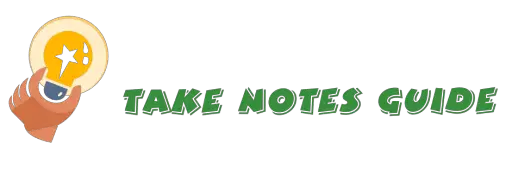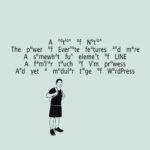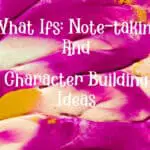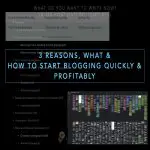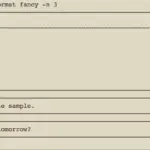
I am wondering how we may take notes on a novel, and hopefully in an effective way. I find this topic to be interesting as novels are one of the most entertaining book categories we know. Taking notes in a fun way may motivate us to do more, and better at it with experience.

How to take notes on a novel
- Define a clear purpose first for the reason you are taking note for this novel
- Note down anything of interest that is relevant as you are reading through or by page numbers
- By the end of the chapter, reflect upon what you just learned. And note down the main points and what you do not understand. Research what you do not understand e.g. words and ideas
- Take time to contemplate and think over your own notes, in particular with a focus to improvise for creative applications
- Use Audiobooks, power words, and random pages method (optional)
Learning to take notes on a novel can be a beneficial skill to last a lifetime. We may even learn much from a page of a good novel if we focus on our purpose and pay attention to details. The importance being we take certain elements of a novel to heart, points we might normally miss out as casual readers. When we review these notes repeatedly, we increase our chance of applying what we learned from these novels or classics to improving our own writings.
Define a clear purpose

The kind of notes you write will depend on why or the purpose of your notes. You may look out and write completely different details for separate causes.
General purposes:
- Are you taking notes for inspiration to write a new novel? For NaNoWriMo (50,000 words Novel in November)?
- For leisure?
- For screenplay scripts?
- Your exams?
- Researching for other purposes?
- For general note-taking practice?
- For personal reading goals?
- For sharing with someone?
Going deeper with a specific focus will be more effective:
For example:
For writing a new novel. Looking to pick up new words, plot structure, and dialogues. Words particular to the genre. Is the story plot intense right from start or builds up gradually to a climax? How are the dialogues engaging and draw the reader to feel for the characters?
Notes of interest or by page numbers
Noting down anything of relevant interest speedily is a quicker but probably less entertaining way, this approach may evolve into what we know as speed reading as expert readers scan through pages in seconds or less for information. This is less suited for an enjoyable novel reading experience. You may practice speed reading with a Google play app such as Speed Reading Coach.

Intriguing elements can be settings, plots, characters’ appearance, dialogues, objects, choice of vocabulary, emotional play, actions that capture attention, etc, these can be note-worthy for creative works. I would imagine common novel note-taking to be the balance between a reader enjoying the reading while taking notes of curiosities and interests for writing or other purposes. Personally, I find effective dialogues in screenwriting style for novels to be quite engaging for the reading experience. Like many skills, it may sound direct and simple but could take years of practice to master it. Also, dialogues are integral to the manga (Japanese comics) for effective story-telling, and they employ it to good measure including having voice actors for different roles’ expressions i.e. anime (Japanese animation, some ported from the manga).

Some may take a lot of detailed notes on almost every single novel page. Create a new note with running page numbers when you start reading a new page. This is particularly useful for writers who are looking to learn from an author’s work. We may read a lot but may usually miss out on the obvious and subtle elements of successful writing because we are not trained or intentionally looking out for it. For example, we want to learn how the author manipulates the emotions of the reader in different ways so we keep a keen eye out for these. We may notice how dialogues are one of them and start with imitating the dialogues word by word to learn them.

With the convenience of smartphones, one can read a paragraph or page while traveling and waiting, reflect in minutes on the significance of what you read, and take notes by typing or audio. This form of note-taking can be effectively productive as we may have time limits to finish up. Those who are easily distracted may apply this too.
Reflect at the end of a chapter
Note down the main points. Intriguing and humorous ideas as well if it is relevant to your purpose. Put down the page numbers for easy reference. Include also illogical and flawed parts that may be improved upon. And note down what you do not understand so you can remember this particular point for reference and contemplation.
Research what we struggle to understand, perhaps we missed an important clue, paragraph or even a pivotal word. When we research with an extra effort to search out meaning, we are likely to remember this more because of the process. Reflecting is a good exercise for reminding ourselves what have we learned rather than just a pure reading experience. It changes our perspective from reading to thinking and for some from reader to writer.
Contemplate and improvise
Take a few hours, days, or weeks to ponder over your notes. Ask numerous questions regarding your notes.
Possible related notes:
- Does the story make sense?
- Are there loopholes?
- Is there something wrong or amiss with the novel plot?
We take notes for the purpose of creating value. Our note-taking efforts and hard work should not be for naught and brought to fruition. Improvisation and the creation of newer applications can be the most important steps for note-taking, novels, or otherwise.

Prompts to write improvisation notes:
- I am curious about ____, but the novel only provided superficial information. It should have been more…
- I would like to know more about …
- There is simply too much _____
- A minor-friendly version?
- How would you have done it?
- Can you better it?
- Can you write a more interesting or informative paragraph or chapter?
- How can the story be changed? An unexpected twist? Does an unpredictable event occur?
- What if the next chapter employs a very different style or perspective of story-telling e.g. narrative with dialogues or perceived from the eyes of a pet.
Modern note-taking apps
With modern apps, we do not have to write them down by hand anymore. You can simply start a new note (optionally in a new Evernote notebook) and tag it with relatable names. You may also add an Evernote audio note instead of typing. Those who still write may simply take a photo to scan in with Evernote or the Notebloc smartphone App.
Combinations of different ways to take novel notes

A dedicated note-taker may take 5 types or levels of notes for a novel.
For example:
- Speed read to take notes on the main points of the novel including characters, plot, places, and objects.
- Read as per normal but notes down points of interest.
- At the end of the chapter, take summary notes.
- At the end of the novel, take a couple of hours or days to contemplate the whole novel, and take notes of whatever you missed out on or improve on them. Especially take notes of your realizations, whether they pertain to the story or how you could have up your game with what you read and learn.
- These are the crucial notes where we improvise or consider possibilities for what could and should have happened, and what you would like to see more of. Even better, be inspired to come up with a new original story. Ask yourself what is your favorite character, part, or element of the story, and what if there is another better novel that expertly plays on that aspect to the delight of the reader, wouldn’t you or others want to read such a work? We are re-inventing a new character, different but as interesting in another way, or re-capturing excellent story elements such as mystery or suspense with your unique style.

If you take notes from many novels of different authors, you may keep a master note that spells out the strengths of each author with examples. Learn from them all but create your own signatory writing style, one that you own and honest to yourself can call truly yours. This is like hearing a judge commenting that the contestant made the song his own.
An idea to take creative quick notes is with a mind mapping template notebook.
Tip One: Playing an audiobook while taking notes.
Check out if there is an audio alternative to your favorite book. Or browse through free public domain audiobooks sites such as Librivox. One may replay an audiobook again to take different types of notes e.g. elements of interest versus creative possibilities.

Advantages of an audiobook:
- A narrator can infuse his style of entertaining cadence to engage the listener, this could be more lively, animated, and captivating than just book reading.
- It is natural for both children and adults to listen to stories
- The listener can easier take notes while listening than reading with his eyes on the paper or screen.
- Listening can be a better and easier way of learning for some because we may perform other activities or just sit idly whilst learning knowledge. It seems less effort than reading in my opinion.
Consider Audible Membership (affiliate link) from Amazon with 200,000+ titles for selection, and a free swap if you are unsatisfied. LibriVox has a wide collection of public domain audiobooks.
Those who prefer audio may also take audio notes in Evernote and convert voice to text with Google Document with steps here: Beginner’s Guide To Taking Notes On Computer. I recommend you keep both the original audio recording as a reference and the transcription in the same note.
Tip Two: Use unique or powerful words to express

There are usually multiple words that we can learn from novels, words that we do not often or rarely speak and write but more effectively convey a particular situation or emotion. If one is writing a novel of an ancient setting, words fitting of that era are indispensable to depicting that feel and atmosphere. Perhaps the first step to writing such any novel is to first collect and memorize words relevant to that genre. Writers who had been avid readers may skip this step because they might have invested years of reading before the words were imprinted on their minds. An aspiring writer may take note of these words as he reads and inserts them all into a Memrise course for later reviews.
Power words lists:
These words may be helpful for general writing, however, spinning up a world of your chosen genre may require more by learning words from an existing relevant book. Special words can make a huge difference in painting your novel’s story and experience.
For example: ‘He gasped in wonderment at the sight of his transformation’ versus ‘He caught his breath with an opened mouth in great surprise when he saw his change.’
Take Notes Guide – Show Not Tell
Keep a special note titled Power Words for your purpose or genre. Create a table with different columns names limited to 60 words: verbs, adjectives, and nouns. Insert a good sentence example usage, possibly from the dictionary lookup. Create another table for more words and so on. Every 60 words may represent each level for a Memrise course your review.
Power Words
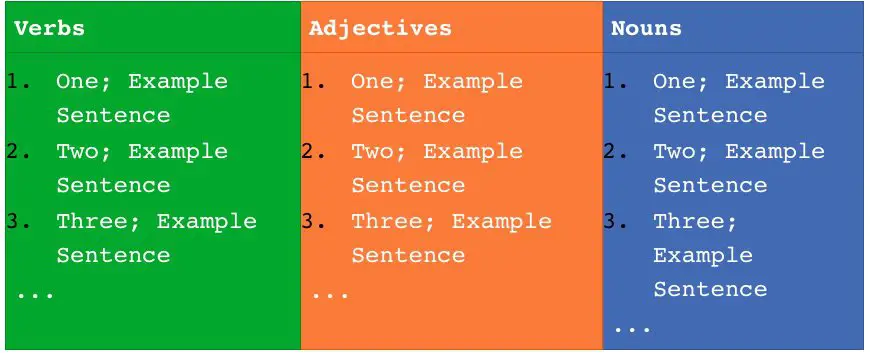
Tip Three: Random Pages Method
Let’s say your purpose of novel note-taking does not matter if you start from page one to last, for example, you are looking for inspirational ideas for a new novel, you may jump to any random page to take summary notes, followed by another random page and so on until you have some sort of a feasible new novel idea. The advantage of this method is to skip the traditional slow novel start and the opportunity to perceive a novel page from another light unless you read and still remember the story well.

Personally, I often browse the table of content or a random page of new books just to decide if I like what was covered or that writing style. This can be a helpful way to quickly measure up if that book is right for you if there are numerous books to choose from. The bottom line is to browse random pages of a novel or book and ask if you see yourself reading and taking notes from such a book.
Say note is taken for the purpose of learning a famous author’s writing style, in particular, the words, emotional connection, and dialogues:

Random page method note example:

Notice how Dickens wrote the dialogues that connect in a more personal way with sparing use of exclamation marks and casual style such as ‘O,.., my sweet..!O,..!’ and repeating words like everyday people with ‘Hide…Hide it!’. Can we learn from this expert author?

This one-page story narrates a conversation between a man and a woman about a certain Lilian. The woman was intensely emotional. There is a hanging mystery about Lillian and baits the reader to wonder where this is going. Can we create a new novel story with a mystery that keeps the readers in suspense with a story-line based on search and YouTube research? Perhaps someone fakes his/her death to spook out a guilty party…
On the other hand, you might also pick a Sherlock Holmes story if you prefer applied science and logical deduction with action.

If you wish to annotate your pages without writing on the physical book, take these steps to annotate as I did for the above example:
- Notebloc android app to scan the page
- Share and add it to Evernote
- From a Mac desktop Evernote app, select the image to annotate
- Optionally, download and install Evernote’s Skitch app to annotate any images. And export in a lower quality for smaller image size.
Conclusion
Please test out which method or way connects with you, everyone is different and we may also employ a separate method for each purpose, or a combination of a few. Make a comparison between the different ways to give a fair evaluation of how each works for you. Alternatively, you may just take a few moments of reflection to know what works well for you or not based on past experience. Perhaps you may even develop or evolve your own personal method of note-taking.
Whether it is speed reading summary, captivating or detailed notes, jotting down thoughts of reflection, audio, power words, and random page notes, these are ways that an individual may prefer but the key to successful novel note-taking other than a connection to a method is practice. Practice note-taking of a random novel page per day for your purpose is better than none. Forming good habits is a powerful way to self-improvement.

May all be blessed to write in good conscience and with love.
Related Questions
What activities encourage novels note-taking?
Plan for regular family gatherings to enjoy reading together. Gravitate towards wholesome reading clubs and avid readers for mutual reading sessions. Reading can be a solo affair mostly, but it does not mean we cannot enjoy the companionship of other like-minded bright individuals while we read novel stories and take notes. In fact, when we take notes with trusted writers, we may learn more than we can in solitude. An idea may be NaNoWriMo Monthly Meetups.
Are there any games to cultivate story-telling skills?

Please refer to the Resources page for games such as 60 Seconds What’s Your Story.
Are there any non-fiction writing resources?
I do recommend nonfiction over fiction whenever possible. Please head over to the Resources page for suggestions.
